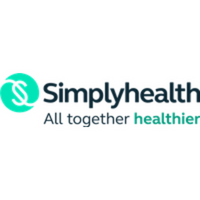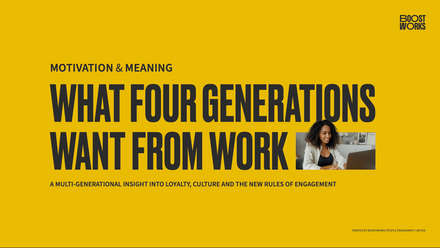From me to you: ways that peer-to-peer recognition can foster a culture of appreciation

So, giving your employees the opportunity to recognise each other for their great team work and behaviour is hugely important. When employees are publicly recognised by their peers it can help create a sense of achievement which encourages employees to be more invested in their job, and your organisation.
Fostering peer-to-peer recognition helps build a culture of appreciation which can have an extremely positive effect on employee performance, as well as other areas such as creating strong team relationships, employee engagement, retention and wellbeing.
Improving performance
Implementing a peer-to-peer recognition programme can encourage a cycle of recognition which becomes part of everyday culture. Employees become more invested in nurturing relationships with their colleagues, which in turn has a positive effect on productivity and performance.
The 2020 Global Culture Report by O.C Tanner found that peer-to-peer recognition increases the probability of a constructive team culture by two and a half times.
Your employees are more likely to go above and beyond if they are personally recognised for their efforts. Small gestures such as a personal thank you can go a long way. An email, or a card in the post, costs virtually nothing and yields invaluable results.
Building stronger relationships
Encouraging employees to be part of a peer-to-peer recognition programme can help build stronger connections and foster a sense of belonging. It also helps reduce any perceptions of hierarchy and shows that words of encouragement, a thank you, and positive feedback, are just as important coming from their peers as they are from management.
For example, on a monthly basis Simplyhealth colleagues are encouraged to nominate a fellow teammate who has demonstrated positive team behaviour, and to also provide a short explanation as to why they should be considered for the award. Colleagues with the most nominations are announced during a team meeting and the words of praise are shared publicly. The winners also receive a prize.
You could also give your employees the opportunity to acknowledge colleagues outside of their day-to-day working teams by highlighting any positive interdepartmental collaborations, to help build relationships across other areas of the business. These could be shared on a virtual shout-out notice board, or as a regular content piece in a newsletter.
Cultivating engagement and boosting wellbeing
Building a culture of appreciation can boost wellbeing and engagement. Employees who are thanked and respected by their peers are more likely to be engaged in their role, for the long-term.
The Society of Human Resources Management’s 2018 Using Recognition and Other Workplace Efforts to Engage Employees report found that, of the 29% of HR professionals whose organisations use peer feedback, 89% reported it as having a very positive or somewhat positive impact on their organisation.
The report also found that 47% of HR professionals cite retention/turnover as a top workforce challenge. Peer-to-peer recognition can help improve retention and satisfaction, meaning employees are less likely to look for another job, and current employees will also champion your organisation as a great place to work.
Stay informed with the latest in health and wellbeing
Peer-to-peer recognition is just one of many ways to support the wellbeing of your employees. You can keep up-to-date with the world of health and wellbeing in the workplace by visiting our Insights Hub; designed to inform and inspire all organisations. Explore a wide range of resources such as research and how-to-guides, and hear from industry experts and partners.
This article is provided by Simplyhealth.
Supplied by REBA Associate Member, Simplyhealth
Simplyhealth is a leading healthcare company, committed to simplifying access to affordable healthcare. Working with thousands of businesses and partners, they connect over 2 million people to best-in-class healthcare providers.







